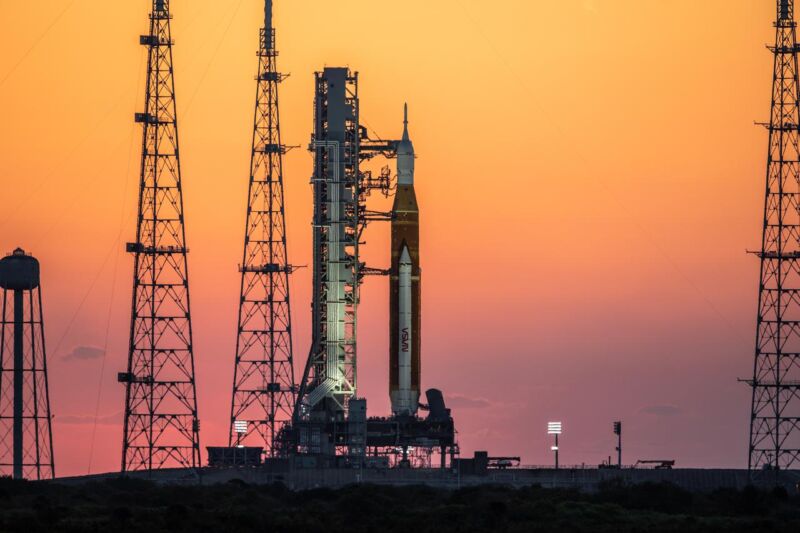
President Joe Biden on Monday released his budget request for the coming fiscal year, and NASA is a big winner. The administration is asking Congress to fund $25.9 billion for the space agency in 2023, an increase of nearly $2 billion over the $24 billion the agency received for fiscal year 2022.
The budget request for NASA includes a healthy increase for the Artemis Program, which seeks to carry out a series of human landings on the Moon later this decade. Notably, funding for a "Human Landing System" would increase from $1.2 billion for the current fiscal year to $1.5 billion, allowing for a second provider to begin work. Additionally, funding for lunar spacesuits would increase from $100 million to $276 million. NASA would also receive substantial funding—$48 million—to begin developing human exploration campaigns for the Moon and beyond.
All of this new funding in the proposed budget comes in addition to the billions that NASA has been spending annually to develop the Space Launch System rocket and Orion spacecraft. Overall funding for Artemis, therefore, would increase from $6.8 billion in fiscal year 2022 to $7.5 billion in the coming fiscal year, which begins October 1, 2022.
This means that, for the first time, the agency could have all of the money it needs for major programs to carry out the Artemis Moon landings. "This budget puts us on the right course," NASA Associate Administrator Bob Cabana said during a telephone call with reporters on Monday afternoon.
Money should come
There is reason to think NASA will get most of the money requested by President Biden. Last year, to a large extent, the Democratic-led Congress supported the president's budget priorities for NASA. The agency's administrator, former US Sen. Bill Nelson, has demonstrated his skill in working with both Democrats and Republicans in Congress. So if NASA can get all of the funding it has asked for, shouldn't the public ask for results in return?
The agency's current schedule for the first three Artemis missions calls for the launch of Artemis 1 (an uncrewed lunar flyby) this summer, Artemis 2 (a crewed lunar flyby) in 2024, and Artemis 3 (the landing of two astronauts on the Moon) in 2025.
Jim Free, NASA's associate administrator for the Exploration Systems Development Mission Directorate, was asked whether NASA could commit to landing humans on the Moon by 2025 if the agency received the full budget request this year and in follow-on years.
"I can tell you that every day we are working to get Artemis 1 off, Artemis 2 in 2024, and Artemis 3 in 2025," Free responded. "I'm not sure what commitment looks like to you, but I can tell you that a lot of people come to work every day that are working to get to 2025."
Other parts of the budget
Beyond the Artemis Program, the budget request would fund NASA's science programs to higher levels than ever before, due in large part to cost overruns for the Europa Clipper mission. The cost of the mission, which will make dozens of flybys of the intriguing Jovian moon from whence its name derives, has increased by $703 million to about $5 billion. To accommodate the cost overruns, several other missions would be delayed, including NEO Surveyor, a mission to detect near-Earth asteroids.
The budget request also seeks to more than double funding for a program to develop "commercial" space stations for when the International Space Station is retired. NASA is working with four different contractors on various proposals to have these private space stations either ready to go or in orbit by the late 2020s. To fund this effort, called "Commercial LEO development," the budget request seeks an increase from $103 million in 2022 to $224 million.
"NASA's strong budget sends a message to our customers and investors about the agency's intentions and confidence in our vision, and [the budget] further supports US competitive leadership in the commercial sector," said Michael Suffredini, president and CEO of Axiom, which is one of the companies working with NASA.
Funding for these commercial station options seems likely, given the current tensions between the US and its major partner on the International Space Station, Russia.
reader comments
175